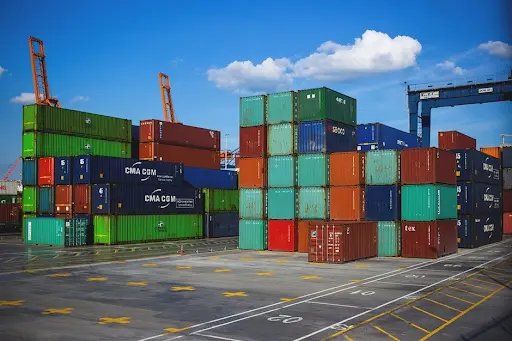
A Guide to Becoming a Logistics Engineer
Read a summary using the INOMICS AI tool
If you’re interested in transportation, shipping, networks, and ensuring these all run like well-oiled machines, then a career in logistics engineering might be for you. You can learn more about embarking on this new career path below.
What Does a Logistics Engineer Do?
The job of a logistics engineer is to handle everything relating to a supply chain management system. They ensure that distribution and shipment processes are efficient and tap into the latest technological advancements to make improvements, such as an electronic logbook for saving money and streamlining transport processes. Logistics engineers are even responsible for creating such software and technology in some businesses.
They will also pore over data to identify opportunities to generate more revenue, improve profitability, and boost productivity. However, it’s a multi-faceted position, which means they must also run quality control procedures, oversee manufacturing processes, develop and train staff, and even coordinate with vendors and suppliers.
No two days are the same in this role, and this may suit many people who don’t want to feel like they’re stuck doing the same tasks day in, day out.
What Do Logistics Engineers Earn?
The pay scale for logistics engineers can vary, but even entry-level engineers can make a reasonable income while they’re still learning. An engineer with less than one year of experience can earn over $60,000, including bonuses, tips, and overtime. That slightly increases with a few more years of experience, and the most experienced logistic engineers can earn over $80,000.
However, the base salary can generally range from $55,000 to $94,000 with bonuses of up to $10,000 and profit-sharing of up to $7,000. There is potential to earn almost $100,000 in this line of work.
What Skills Does a Logistics Engineer Need to Have?
There can be many overlapping skills for different engineering fields, such as chemical engineering and electrical engineering. However, you may need a wide range of unique skills for the position of logistics engineer. Fortunately, many of the necessary skills can be acquired on the job, not just in educational facilities.
Reading comprehension is one of the most important, as you may spend a lot of time poring over documents to make the soundest decision for your business. Being a critical thinker and an active listener is also crucial, alongside being proficient in systems evaluation and analysis.
Logistics engineers are also knowledgeable in design, mathematics, computers, electronics, engineering, and technology. A combination of work-related skills and knowledge is highly sought after by employers, along with several years of tertiary education.
What Companies Hire Logistics Engineers?

Image Source: Pexels
You might assume that logistics engineers aren’t one of the most in-demand engineering jobs, but many top companies are looking for people with experience in this very industry. The U.S. Army, U.S. Navy, U.S. Airforce, and U.S. Marine Corp have all had listings on job sites, along with large companies like Amazon and Target.
When you consider just how many tasks are listed in the average job description for a logistics engineer, you can understand how they would be a valuable asset to a variety of businesses.
How to Become a Logistics Engineer
Becoming a logistics engineer can often require a bachelor’s degree, with many students studying operations management and supervision to put them on the path to such a career. Within this program, you learn about managing and directing an organization’s functions, productivity analysis, cost control, production control, equipment maintenance, and much more.
With this education and a bachelor’s degree, you can typically enter the workforce with no work experience and no on-the-job training, ready to put your newfound skills and characteristics to good use.
Why Become a Logistics Engineer?
Deciding on your career path for the rest of your life can be a big call to make, and you likely want to be sure you’re aware of all the facts before jumping into making a decision. One benefit that stands out more than most is the earning potential. You stand to carve out a comfortable lifestyle for yourself by working hard, earning the appropriate qualifications, and working your way up the ranks.
Becoming a logistical engineer is also such a varied position that you’ll have a new challenge every day, and the learning opportunities are limitless.
Even if you aren’t set on becoming a logistics engineer right now, there’s no harm in reviewing what they do, the type of companies that hire them, and the earning potential. It can then be a path you consider when you’re ready to start thinking about tertiary education.
Header Image Source: Geralt
We would like to thank Titan GPS for their support in producing this career advice article for New Engineer.
-
- Mid-Level Industry Job
- Posted 2 months ago
Configuration Manager - Accelerators and FCC Study (EN-ACE-CL-2025-207-LD)
At CERN in Genève, Schweiz -
- Practitioner / Consultant Job
- Posted 3 days ago
Geo Environmental Site Engineer
At CV-Library in High Wycombe, Großbritannien -
- Practitioner / Consultant Job
- Posted 2 days ago
SENIOR GEOTECHNICAL ENGINEER
At Conrad Consulting in London, Großbritannien









